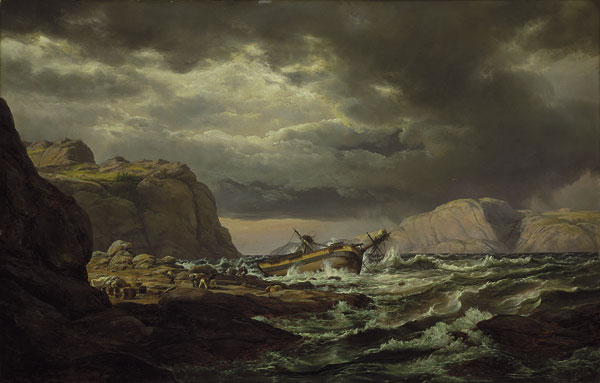Philosophical thought changed following the quake of 1755. When the walls fall in on hundreds of thousands of good Christians doing what theyre suppose to be doing, a seed of doubt is planted. As the article says,
For eighteenth century theology and philosophy, this manifestation of the anger of God was difficult to explain... So philosophers turned elsewhere.
Eventually, the arts were influenced. Writers, poets, artists, and musicians turned to other subjects for expression. For example, in the decades following the Lisbon earthquake:
Interest in the macabre and supernaturalLiterature: Frankenstein (1818 ) Mary Shelleyimagine how a book about piecing a human together from cadaver body parts and bringing it to life would have been received in a society tightly controlled by Christianity. I doubt it would ever have been published, let alone conceived.
Music: Der Freischutz (opera, 1821) Carl Maria von Weberplot deals with an essentially-good guy who makes a pact with the devil in return for some worldly pleasure. Kinda like the Faust legend.
Symphonie Fantastique (symphony, 1830) Hector Berlioz--programmatic symphony (in 5 movements) is which the protagonist kills his beloved and is sent to the gallows in the fourth movement, and then experiences the "witches sabbath" in the fifth
Unrequited love (always big with romanticists!)
Literature: Sorrows of Young Werther (1774) Johann Wolfgang von Goetheabout a young man who commits suicide due to unrequited love.
Music: "Wintereise" (1824) Franz Schubert; and "Dicterliebe" (1840) Robert Schumann,--unrequited love, again.
NatureCheck out the painters of the late 19th/early 20th century. Subjects will include sweeping panoramas of nature. If man is included in the painting, many times he is depicted as small or insignificant. Also, ruins or shipwrecks may also be seen as examples of mans endeavors eroded or destroyed by time and nature.
 Shipwreck on the Coast of Norway 1832Johan Christian Dahl
Shipwreck on the Coast of Norway 1832Johan Christian DahlThese are only a few examples taken off the top of my head. It may be an oversimplification that this all began on November 1, 1755, but certainly the Lisbon earthquake was a defining moment that prompted man to look elsewhere other than the church or religion for answers...